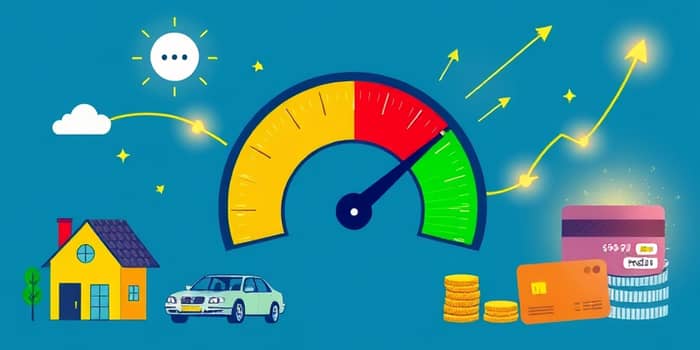
Your credit score influences nearly every major financial decision, from mortgage rates to personal loans. Understanding its impact can save you tens of thousands of dollars over time.
In this guide, we explore how credit scores work, why they matter for different loan types, and practical steps to strengthen your financial profile.
A credit score is a numerical measure of creditworthiness used by lenders to assess risk. The two primary models are FICO® Score and VantageScore.
Scores range from 300 to 850, with higher scores unlocking better borrowing terms and lower interest rates. Lenders rely on this single figure to set loan approval and pricing.
Understanding where you fall on the score spectrum helps you anticipate loan terms and identify areas for improvement.
For FICO:
VantageScore categories are similar, with Superprime beginning at 781 and Subprime below 600. Each tier reflects different risk profiles and interest rates.
Five key components determine your score, each weighted to reflect its importance.
Beyond these percentages, lenders also evaluate recent applications, utilization rates, and negative marks like bankruptcies.
Different loans have varying minimum score requirements. Your score directly affects your ability to qualify and the terms you receive.
Higher scores typically translate into lower interest rates and better loan terms. Lenders employ risk-based pricing models, assigning rates based on your credit bracket.
Consider a $200,000, 30-year mortgage:
• Score 760–850: ~3.3% interest, $877/month
• Score 620–639: ~4.9% interest, $1,061/month
Difference: $184 more per month, about $66,400 extra over the loan’s life.
Each loan type reacts differently to your credit profile, shaping approval odds and cost.
Boosting your credit takes consistent effort. Follow these steps to strengthen your profile before applying for a loan.
If a lender denies your application due to credit reasons, you must receive an adverse action notice specifying the credit score, range, and reporting agency used. This transparency empowers you to address issues and reapply with confidence.
Understanding the nuances of credit scoring and loan processes positions you to make informed decisions, secure better rates, and achieve financial goals with clarity and confidence.
By mastering your credit score, you unlock greater borrowing power and long-term savings, paving the way for a stronger financial future.
References













